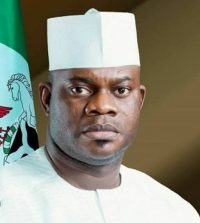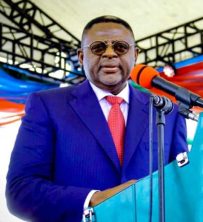By Our Reporter
ABUJA — Senior Advocate of Nigeria, Dr. Monday Ubani, has said President Bola Ahmed Tinubu’s declaration of emergency rule in Rivers State is a replay of a long-standing dilemma in Nigeria’s political history — whether crises should be resolved within democracy or through the temporary suspension of democratic structures.
Ubani explained that the dilemma dates back to 1962 when Prime Minister Sir Abubakar Tafawa Balewa declared Nigeria’s first state of emergency in the Western Region. At the time, violent clashes between factions loyal to Chief Obafemi Awolowo and Chief S.L. Akintola paralysed governance. Balewa responded by suspending the Premier, his cabinet and the legislature, and appointed Dr. Moses Majekodunmi as sole administrator.
“That decision,” Ubani said, “introduced a precedent: when political leaders themselves fuel unrest, suspending them may be the only way to restore order. Tinubu’s action in Rivers follows the same political logic.”
He noted that former President Olusegun Obasanjo revived the practice in the Fourth Republic, first in Plateau State in 2004 and later in Ekiti State in 2006. In both cases, governors and assemblies were suspended and retired generals installed as administrators, with Obasanjo insisting that elected leaders had become too compromised to end the crises themselves.
According to Ubani, Tinubu’s March 18, 2025 intervention in Rivers — which suspended Governor Siminalayi Fubara, his deputy and the House of Assembly, and appointed Vice Admiral Ibok-Ete Ekwe Ibas (rtd.) as sole administrator — fits into this interventionist tradition. The emergency lasted six months before being lifted on September 17, with democratic governance restored.
Tinubu defended his decision, arguing that the state’s political actors had become the greatest threat to peace and stability, particularly amid escalating violence and attacks on vital oil infrastructure. By suspending them, he said, he preserved the stability of Rivers State and safeguarded Nigeria’s oil economy.
Ubani contrasted Tinubu’s approach with that of former President Goodluck Jonathan, who in 2013 declared emergencies in Borno, Yobe and Adamawa but left governors and legislatures in place. While that move was hailed as a constitutional milestone, critics faulted it as slowing down the fight against Boko Haram insurgency.
He also recalled that former President Muhammadu Buhari, despite facing multiple security crises, avoided emergency declarations altogether. Instead, Buhari relied on heavy military deployments across the country — a strategy Ubani said sidestepped constitutional disputes but risked creating a “militarised state without parliamentary oversight.”
“The lesson from history is clear,” Ubani stressed. “Emergency powers are blunt tools. They must be exercised with caution, subjected to National Assembly control, and always followed by a full restoration of democratic governance.”
He concluded that whether Tinubu’s action in Rivers will be seen as a necessary stabilising step or a democratic setback, it reflects a political dilemma that has shaped Nigeria’s history for the past 63 years.






